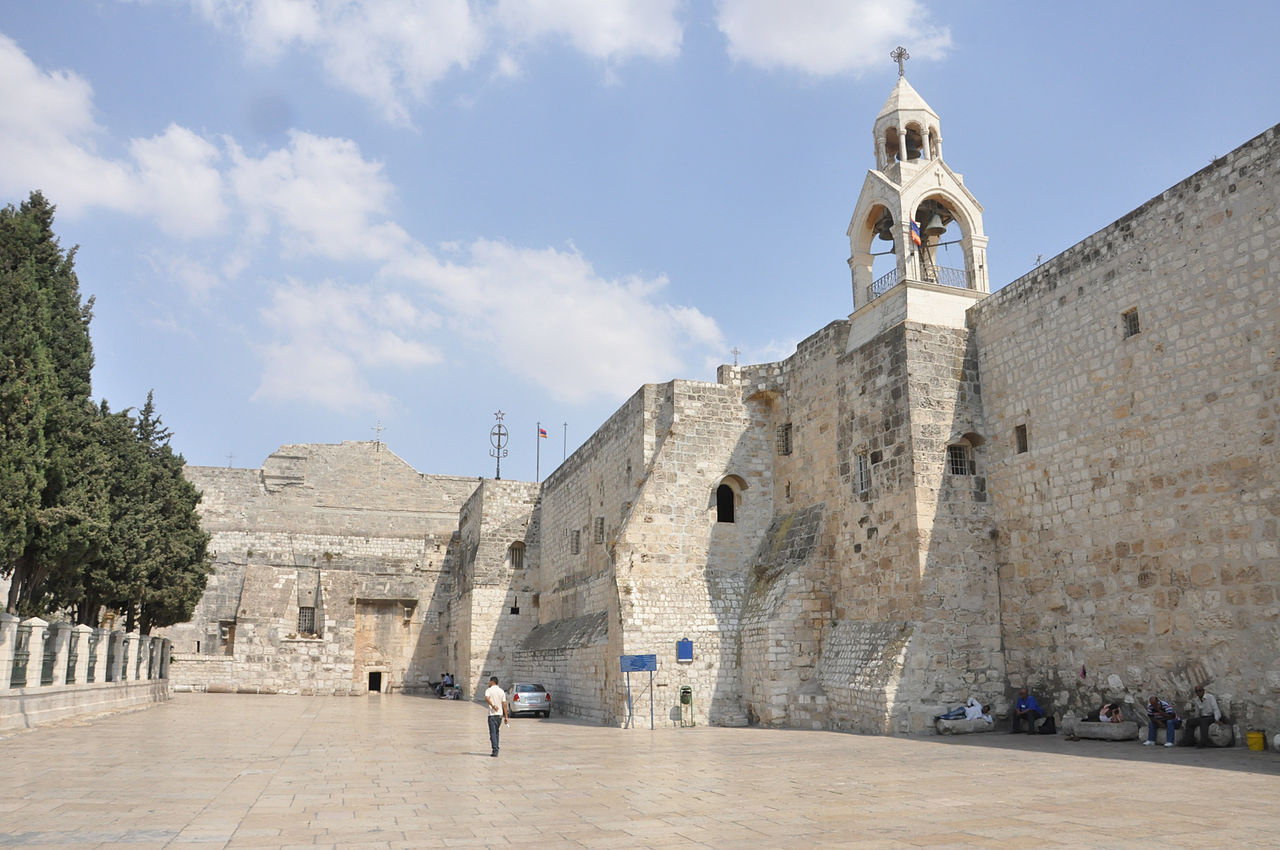Jesus was born in Bethlehem, a city in Palestine’s West Bank located about 10 kilometers (6.2 miles) south of Jerusalem, according to two accounts in the Christian New Testament. However, other religious scriptures and ancient sources are not so certain about this claim.
Scholars debate how reliable the Bible is as a historical source, but most tend to agree that Jesus was a real historical figure, not merely a myth. It’s less widely believed among academics that the New Testament is an accurate biographical account of Jesus’ life. However, given the lack of hard evidence from the time, Biblical accounts are often the only source they have to go by – and some historical truths can be sniffed out from them.
The Gospels of Matthew and Luke are the only two narratives in the New Testament to detail the birth of Jesus, both of which claim that Jesus was born in Bethlehem under the reign of King Herod (beyond this, the two accounts of the same event vary significantly).
Since at least the 2nd century CE, people have believed that the birthplace of Jesus is located in a cave at the site of the Church of the Nativity in Bethlehem, according to UNESCO. The church itself was only completed in 339 CE and it’s undergone many renovations and revamps over the past 1,700 years, but many Christian denominations still make pilgrimages to the site today, heralding it as the birthplace of the prophet.

The Church of the Nativity, a basilica located in Bethlehem in the State of Palestine, is said to be the birthplace of Jesus in various denominations of Christianity.
Oddly, the other two Gospels of the New Testament – Mark and John – do not explicitly mention Jesus’ birth, let alone it being Bethlehem.
Instead, the Gospel of Mark repeatedly says that Jesus is from “Nazareth of Galilee” whilst never mentioning Bethlehem. The Gospel of John also links Jesus to Galilee and Nazareth. Although John mentions that the Messiah was predicted to come from Bethlehem, Jesus is never directly associated with the city.
The Quran, the holy book of Islam, also mentions the birth of Jesus and even venerates him as a prophet of God. Once again, there is no mention of Bethlehem, but it does say that Mary gave birth to him in an unspecified “distant place.”
Some argue that the link to Bethlehem has more to do with ancient politics and religious rites than historical facts.
Writing for The Conversation, Rodolfo Galvan Estrada III – an Assistant Professor of the New Testament at Vanguard University – explains that the Bible makes a great effort to portray Jesus as a descendent of King David. After all, God was said to have promised that the throne of David would rule Israel forever.
In some biblical passages, it suggests that the Messiah would come from the esteemed lineage of King David. Since it was claimed that Jesus’ father Joseph was a descendant of David, Jesus fits the bill nicely.
However, a book from the Hebrew Bible called Micah prophesies that the Messiah would come from David’s hometown, which was Bethlehem. By solidly linking the birth of Jesus to Bethlehem, the Gospels of Matthew and Luke were contributing to the claim that Jesus was the Messiah from a Davidic lineage, Estrada argues.
Along with Jesus’ birthplace, there is also a fair amount of uncertainty floating around his birthday. Most (but not all) Christian traditions celebrate his birth on December 25, but the New Testament doesn’t actually mention a date. Once again, the explanation behind this is steeped in history, politics, and tradition.
Source Link: Where Was Jesus Born? Was It Actually The Town Of Bethlehem?